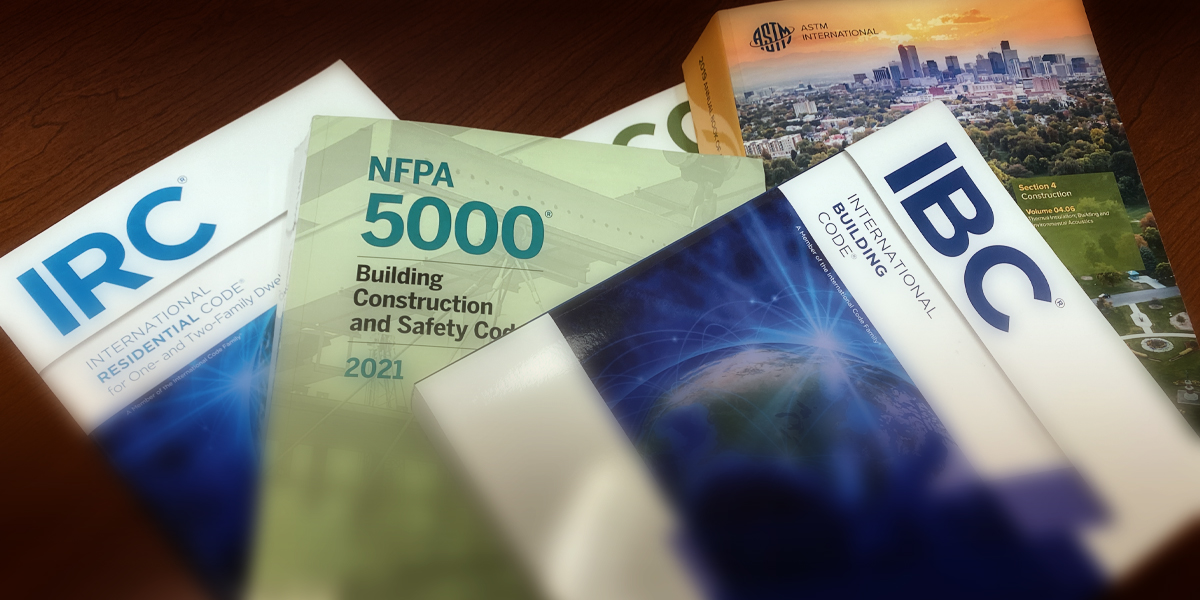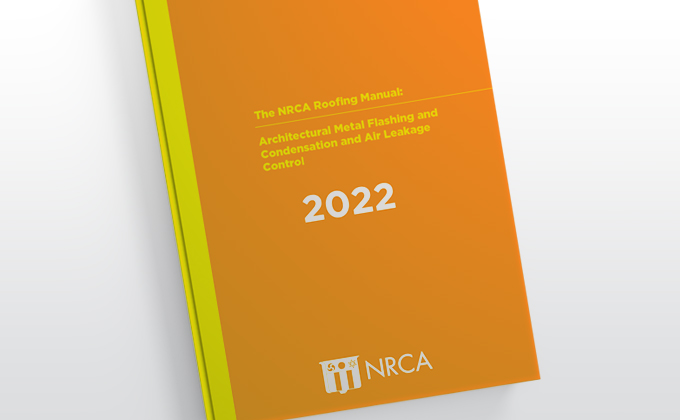Developed and implemented by state or local governments, building codes are performance and prescriptive construction requirements for commercial and industrial buildings. Most states adopt model building codes created by the International Code Council or National Fire Protection Association. Model building codes reference industry standards published by ASTM International and other organizations that develop standards used in commerce. Professional Roofing also provides information about roofing-related building codes.
Codes and Standards
Standards are used in building construction as bases of comparison. There are different types of standards for building construction, and it is important to be familiar with all of them.
- Testing standards define test methods and minimum acceptable results
- Rating standards establish measurement methods for a fair comparison of products
- Design standards detail criteria for specific building and/or roof system designs
International Code Council
The ICC publishes a family of coordinated national model building codes referred to as the International Codes® (I-Codes®). ICC has adopted a three-year update cycle for the I-Codes to allow for new construction methods and technologies to be incorporated into the codes. The most recently published model codes in the I-Code family include the 2024 International Building Code®, 2024 International Residential Code®, 2024 International Energy Conservation Code® and 2024 International Green Construction Code.
Energy codes
Most roofing professionals understand a building's roof assembly serves an important role in controlling a building's overall energy efficiency and building owners' heating and cooling costs. However, some may not realize that codes mandate minimum thermal insulation requirements for the energy efficiency of most buildings.
Energy conservation codes usually are adopted by individual states and are applicable to all buildings within that state. Most states have adopted one of several editions of the International Energy Code, published by the International Code Council, to serve as the technical basis of their energy codes. In some instances, individual states modify the IECC to address specific regional or local issues.
The U.S. Department of Energy's Building Energy Codes Program has information about state’s current energy code adoption. Contact the government agency having jurisdiction to verify the specific energy code(s) applicable to your projects.



